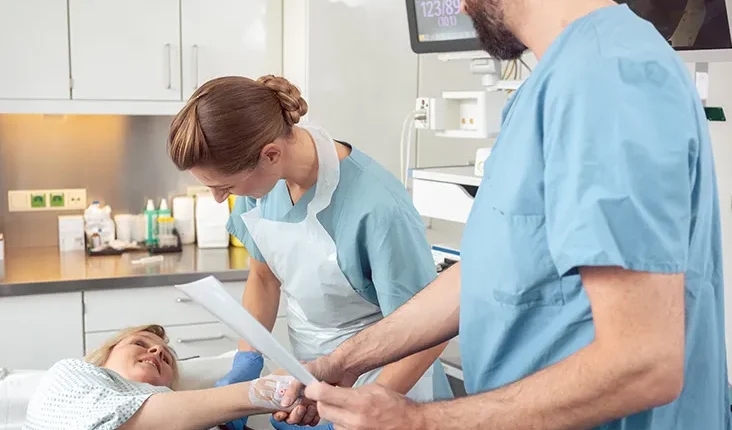What Is A Colonoscopy?
Many patients worry about scheduling a colonoscopy because they fear the pain and discomfort they will experience during the procedure. However, this is far from the truth because patients undergoing a colonoscopy are under general anesthesia and are thus not awake to remember the experience. It would be best to find a skilled physician like Vikram S. Jayanty M.D. to ensure a safe and effective colonoscopy procedure that will address your concerns.
Physicians usually recommend a colonoscopy to patients with abdominal pain and rectal bleeding because the procedure involves looking inside the large intestine to detect abnormalities that might explain a patient’s symptoms. Patients above age 45 need regular colonoscopies to help prevent colorectal cancer. The procedure can detect abnormal growths, called polyps, and thus your doctor will remove them early before they develop into cancer.
Table of Contents
The importance of an initial colonoscopy consultation
It is essential to attend an initial consultation to help your doctor tailor the best approach and determine procedure candidacy. Physicians encourage patients to be open about any underlying medical conditions like pregnancy, heart, lung, and kidney disease, or allergies to medications, influencing the treatment approach. Moreover, you should inform your doctor if you are under any medications because it may be necessary to adjust some medicines that interfere with blood clotting.
What do you need to do before a colonoscopy?
Physicians usually advise patients to restrict their diet at least 24 hours before the procedure. This change in diet will ensure a clean colon and thus promote treatment efficacy. You may not take solid foods but restrict your diet to only clear liquids like water, broth, sports drinks, or coffee.
Although you may not have consumed any solid foods, you will still need to empty your bowel before the procedure. Your doctor may prescribe a laxative that will make you want to go to the toilet to relieve yourself. Another alternative to empty your bowel is to supplement the laxative with a series of enemas. It is essential to follow your doctor’s advice and empty your bowel the night before your procedure or the night and the morning of your colonoscopy appointment.
Physicians usually recommend that patients come into the hospital with someone who will drive them home afterward because the procedure involves sedation, making it unsafe for you to go at least 8 hours after the process.
How do physicians perform a colonoscopy?
Your doctor will ask you to lie on an examination table, preferably on your left side. You will receive sedation through an IV drip in your arm to help you calm down and fall asleep. The next step involves your doctor inserting a tube-like instrument, a colonoscope, through your rectum. The tube has a video camera to help your doctor on the tip to help your doctor see your rectal lining on a monitor and thus detect areas of concern. The tube allows your doctor to pump in air to better view your colon. A biopsy is possible via a small snare in the colonoscope to get samples for further testing.
Contact Vikram S. Jayanty M.D. offices to schedule a colonoscopy, determine the cause of your rectal concerns and thus start a treatment plan to restore wellness.

